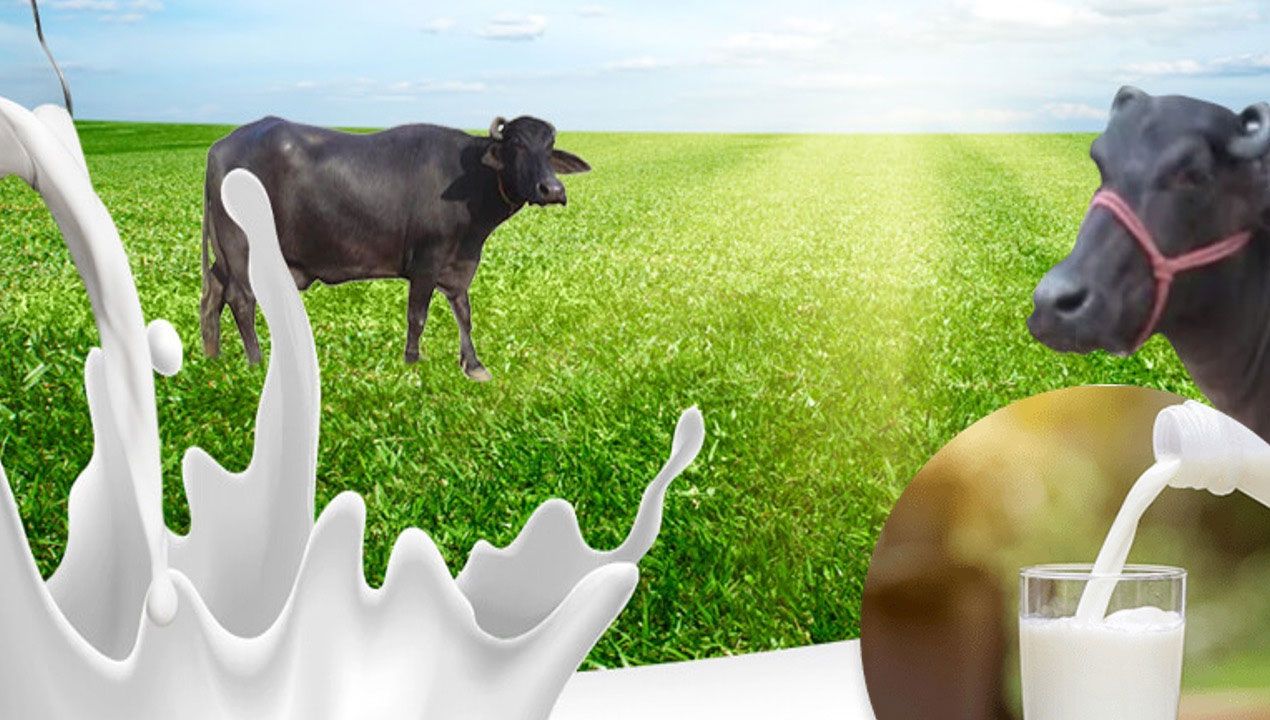Milk has long been a staple in diets around the world, providing essential nutrients and a versatile ingredient for countless dishes. While cow’s milk is the most commonly consumed variety, buffalo milk is gaining popularity for its unique characteristics and health benefits. Let’s delve into what makes buffalo milk stand out and why you might want to consider incorporating it into your diet.
Nutritional Powerhouse
Buffalo milk is a nutritional powerhouse compared to cow’s milk. It contains higher levels of fat, protein, lactose, vitamins, and minerals. This rich composition makes it particularly beneficial for growing children, athletes, and anyone needing an energy boost.
-
Higher Fat Content: Buffalo milk has a higher fat content, about 7-8%, compared to cow’s milk, which averages around 3-4%. This makes it creamier and more flavorful. The fat in buffalo milk is also richer in conjugated linoleic acid (CLA), which has been associated with various health benefits, including reduced body fat and improved immune function.
-
Protein-Rich: The protein content in buffalo milk is around 10-11%, compared to cow’s milk at about 3-4%. Proteins are essential for building and repairing tissues, making buffalo milk an excellent choice for those with higher protein needs.
-
Mineral-Rich: Buffalo milk is a good source of calcium, magnesium, and phosphorus. These minerals are crucial for maintaining strong bones and teeth, as well as supporting various bodily functions.
-
Vitamin Boost: Buffalo milk is rich in vitamins A and D. Vitamin A is important for vision, immune function, and skin health, while vitamin D helps in the absorption of calcium and promotes bone health.
Health Benefits
The superior nutritional profile of buffalo milk translates into several health benefits:
-
Stronger Bones and Teeth: The high calcium and phosphorus content in buffalo milk helps in maintaining strong bones and teeth, reducing the risk of osteoporosis and dental problems.
-
Improved Muscle Growth and Repair: The higher protein content aids in muscle growth and repair, making it ideal for athletes and individuals with high physical activity levels.
-
Enhanced Immune Function: The vitamins and minerals in buffalo milk support a healthy immune system, helping the body fight off infections and diseases more effectively.
-
Better Skin Health: The presence of vitamin A contributes to healthier skin, promoting cell growth and repair and reducing the risk of skin conditions.
Culinary Uses
Buffalo milk’s creamy texture and rich flavor make it a favorite in various culinary traditions. Here are some popular uses:
-
Cheese: Buffalo milk is famously used to make mozzarella cheese, known for its rich taste and creamy texture. Other cheeses made from buffalo milk include ricotta and feta.
-
Butter and Ghee: The high-fat content makes buffalo milk ideal for producing butter and ghee, which are staple ingredients in many cuisines.
-
Desserts: Buffalo milk is often used in traditional desserts like kulfi (a type of ice cream), kheer (a rice pudding), and other sweets due to its creamy texture and natural sweetness.
-
Yogurt: Buffalo milk yogurt is thicker and creamier compared to cow’s milk yogurt, making it a delicious and nutritious option for breakfast or snacks.
Environmental Impact
Buffalo farming can be more environmentally sustainable compared to cow farming. Buffaloes are more efficient in converting feed into milk and can thrive on a variety of roughages, reducing the need for high-quality feed that often requires significant resources to produce.
Conclusion
Buffalo milk is a nutritious, versatile, and delicious alternative to cow’s milk. Its rich content of fats, proteins, vitamins, and minerals makes it an excellent choice for those looking to boost their nutrient intake. Whether you’re interested in its health benefits, culinary uses, or environmental impact, buffalo milk is definitely worth considering. So, next time you’re at the store or visiting a dairy farm, why not give buffalo milk a try? Your taste buds and your body will thank you!

